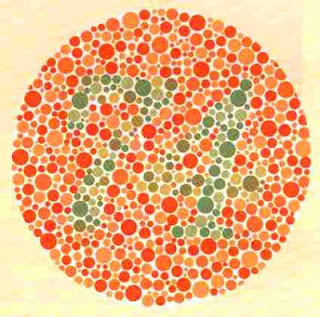Advanced Placement Psychology
Unit 2 - Biological Bases of Behavior - "Sensation & Perception"
Week at a Glance:
MON: Quick review of Super Bowl commercials to introduce Sensation & Perception; Notes & Discussion Sensation Intro
TUE: Quiz Unit 2 Biological Bases of Behavior (Special Emphasis on Chapter 4 Weiten - Sensation & Perception); Sensation & Perception Notes & Discussion - Vision, Hearing.
W/TH: Brain Project Due in Class; Complete study of Sensation & Perception.
FRI: Unit 2 Test is due in class; Introduce Unit 3 - Consciousness & Learning
------------------------------------------------
Monday, February 4, 2013
------------------------------------------------
Monday, February 4, 2013
Quote: "In three words I can sum up everything I've learned about life: it goes on." - Robert Frost
Learning Targets - Unit 2 - Biological Bases of Behavior - "Sensation & Perception"
If you learn only 4 things from this chapter for the AP Test...
1. Perception is the interpretation of sensory information; it relies on experience.
2. The difference between sensation and perception
3. The structure and function of the eye
4. The structure and function of the ear
Sensation and perception are areas that have been of interest to psychologists for most of the history of psychology. As we sit here, our senses receive literally thousands of messages. We need to make sense of this information. Our senses take in the information, and they do so from birth. Yet the interpretive part -perception- requires knowledge.
Essential Questions:
* How do we convert light into images?
* How does the ear responds to sound waves?
* How do we taste or smell?
* How does the somatic sensory system function?
* How do we convert light into images?
* How does the ear responds to sound waves?
* How do we taste or smell?
* How does the somatic sensory system function?
Agenda:
1. Do Now Question: Which Super Bowl commercial caught your attention the most and which did you think was the 'best'?
2. Introduction to Sensation & Perception - also a look at and discussion of Super Bowl Commercials.
3. Notes, Video, and Discussion - Introduction to Sensation.
------------------------------------------------
Tuesday, February 5, 2013
Tuesday, February 5, 2013
Quote: "The shoe that fits one person pinches another; there is no recipe for living that suits all cases." - Carl Jung
Learning Targets - Unit 2 - Biological Bases of Behavior - "Sensation & Perception"
If you learn only 4 things from this chapter for the AP Test...
1. Perception is the interpretation of sensory information; it relies on experience.
2. The difference between sensation and perception
3. The structure and function of the eye
4. The structure and function of the ear
Sensation and perception are areas that have been of interest to psychologists for most of the history of psychology. As we sit here, our senses receive literally thousands of messages. We need to make sense of this information. Our senses take in the information, and they do so from birth. Yet the interpretive part -perception- requires knowledge.
Essential Questions:
* How do we convert light into images?
* How does the ear responds to sound waves?
* How do we taste or smell?
* How does the somatic sensory system function?
* How do we convert light into images?
* How does the ear responds to sound waves?
* How do we taste or smell?
* How does the somatic sensory system function?
Agenda:
1. Do Now Question: Prep for quiz on Unit 2 (Sensation & Perception mostly)
2. Quiz - Sensation & Perception.
 |
| If you are color blind, you could have a problem with this one. Our sense of sight is our strongest sense for most people. |
------------------------------------------------
Wednesday, February 6, 2013 & Thursday, February 7, 2013
Wednesday, February 6, 2013 & Thursday, February 7, 2013
Quote: "Every man dies. Not every man really lives." - William Wallace
Learning Targets - Unit 2 - Biological Bases of Behavior - "Sensation & Perception"
If you learn only 4 things from this chapter for the AP Test...
1. Perception is the interpretation of sensory information; it relies on experience.
2. The difference between sensation and perception
3. The structure and function of the eye
4. The structure and function of the ear
Sensation and perception are areas that have been of interest to psychologists for most of the history of psychology. As we sit here, our senses receive literally thousands of messages. We need to make sense of this information. Our senses take in the information, and they do so from birth. Yet the interpretive part -perception- requires knowledge.
Essential Questions:
* How do we convert light into images?
* How does the ear responds to sound waves?
* How do we taste or smell?
* How does the somatic sensory system function?
* How do we convert light into images?
* How does the ear responds to sound waves?
* How do we taste or smell?
* How does the somatic sensory system function?
Agenda:
1. Do Now Question: Prep for handing in Brain Project.
2. Brain Project - Turn in projects, display, present, and discuss.
------------------------------------------------
Friday, February 8, 2013
Friday, February 8, 2013
Quote: "All the art of living lies in a fine mingling of letting go and holding on." - Henry Ellis
Learning Targets - Unit 2 - Biological Bases of Behavior - "Sensation & Perception"
If you learn only 4 things from this chapter for the AP Test...
1. Perception is the interpretation of sensory information; it relies on experience.
2. The difference between sensation and perception
3. The structure and function of the eye
4. The structure and function of the ear
Sensation and perception are areas that have been of interest to psychologists for most of the history of psychology. As we sit here, our senses receive literally thousands of messages. We need to make sense of this information. Our senses take in the information, and they do so from birth. Yet the interpretive part -perception- requires knowledge.
Essential Questions:
* How do we convert light into images?
* How does the ear responds to sound waves?
* How do we taste or smell?
* How does the somatic sensory system function?
* How do we convert light into images?
* How does the ear responds to sound waves?
* How do we taste or smell?
* How does the somatic sensory system function?
Agenda:
1. Do Now Question: Prep for handing in Unit 2 Test on Biological Bases of Behavior.
2. Introduce Unit 3 - Consciousness & Learning.
3. Notes, Video, and Discussion - Unit 5 - Consciousness


